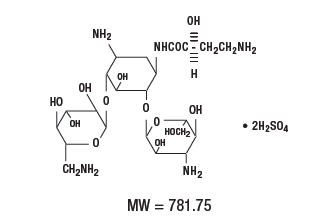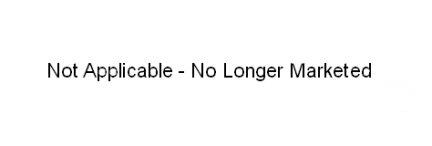Amikin | Amikacin Sulfate Injection while Breastfeeding

What is Amikin | Amikacin Sulfate Injection used for?
Amikin | Amikacin Sulfate Injection while breastfeeding safe or not? Can there be any side effects for infant while using it during breastfeeding?

Nursing Mothers It is not known whether AMIKIN is excreted in human milk. Because many drugs are excreted in human milk and because of the potential for serious adverse reactions in nursing infants from AMIKIN, a decision should be made whether to discontinue nursing or to discontinue the drug, taking into account the importance of the drug to the mother.
Amikin | Amikacin Sulfate Injection Breastfeeding Analsys
Amikacin sulfate while Breastfeeding
SafeCAS Number: 37517-28-5
Levels in the mother's milk are very low and in most instances undetectable. Like other aminoglycosides it is poorly absorbed in the intestine. Large doses may affect intestinal flora. Be aware of false negative bacterial cultures in the infant when the mother is on antibiotics. .
Amikin | Amikacin Sulfate Injection Breastfeeding Analsys - 2
Amikacin sulfate while Breastfeeding
CAS Number: 37517-28-5
Amikacin is poorly excreted into breastmilk. Newborn infants apparently absorb small amounts of other aminoglycosides, but serum levels with typical three times daily dosages are far below those attained when treating newborn infections and systemic effects of amikacin are unlikely. Older infants would be expected to absorb even less amikacin. Because there is little variability in the milk amikacin levels during multiple daily dose regimens, timing breastfeeding with respect to the dose is of little or no benefit in reducing infant exposure. Data are not available with single daily dose regimens. Monitor the infant for possible effects on the gastrointestinal flora, such as diarrhea, candidiasis (e.g., thrush, diaper rash) or rarely, blood in the stool indicating possible antibiotic-associated colitis.

I am nursing mother and I have already used Amikin | Amikacin Sulfate Injection, what should I do?
It is always a good idea to keep your healthcare provider or doctor informed about your drug usage during pregnancy and breastfeeding but if you have not informed your doctor about Amikin | Amikacin Sulfate Injection and have used it then do not panic as Amikin | Amikacin Sulfate Injection is mostly safe in breastfeeding and should not cause any harm to your baby.
I am nursing mother and my doctor has suggested me to use Amikin | Amikacin Sulfate Injection, is it safe?
Usage of Amikin | Amikacin Sulfate Injection is safe for nursing mothers and baby, No worries.
If I am using Amikin | Amikacin Sulfate Injection, will my baby need extra monitoring?
No
Who can I talk to if I have questions about usage of Amikin | Amikacin Sulfate Injection in breastfeeding?
US
National Womens Health and Breastfeeding Helpline: 800-994-9662 (TDD 888-220-5446) 9 a.m. and 6 p.m. ET, Monday through Friday
UK
National Breastfeeding Helpline: 0300-100-0212 9.30am to 9.30pm, daily
Association of Breastfeeding Mothers: 0300-330-5453
La Leche League: 0345-120-2918
The Breastfeeding Network supporter line in Bengali and Sylheti: 0300-456-2421
National Childbirth Trust (NCT): 0300-330-0700
Australia
National Breastfeeding Helpline: 1800-686-268 24 hours a day, 7 days a week
Canada
Telehealth Ontario for breastfeeding: 1-866-797-0000 24 hours a day, 7 days a week
